Scottish Symbols & Emblems
Scottish symbols... kilts and bagpipes, right?
Well, yes of course, but there are so many more!
For a little country, Scotland has packed a LOT of color, tradition, superstition and magic into it's history.
Many of the most well-known symbols of Scotland date back centuries, and are surrounded by legends, superstitions, folklore and pageantry.
They've often been immortalized in poetry, songs and music, and are tightly woven into the colorful history of this fascinating country.
They include music, plants, historical buildings, ancient Celtic designs, mythical creatures, famous Scots and many more.
Some symbols are officially recognized, others are strongly associated with Scotland but their status as a symbol is 'unofficial' (but this doesn't make them any less Scottish, or any less beloved!).
The nationally recognized symbols of Scotland are:
- National Flag - Saltire
- National Flower - Thistle
- National Animal - Unicorn
- National Tree - Scots Pine
- National Dog - Scottish Terrier
- National Poet - Robert Burns
- Patron Saint - Saint Andrew
- National Dish - Haggis
Meanwhile, the UNofficial symbols of Scotland include:
- Scottish heather
- The Lion Rampant
- 'Scotland the Brave'
- Kilts
- Scottish clan system
- Bagpipes
- Scotch Whisky
- Golden Eagle
- Castles
- Highland games
- Hogmanay traditions
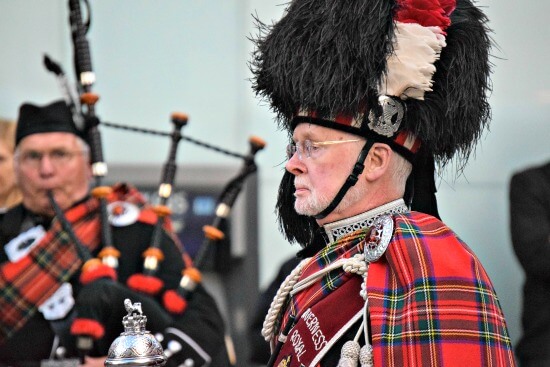
Are you ready? Okay, let's get started!
We present to you one of the most well-known symbols of Scotland, the beautiful and hardy Scottish thistle....
The Thistle is one of Scotland's most well-known symbols, and is Scotland's official National Flower.
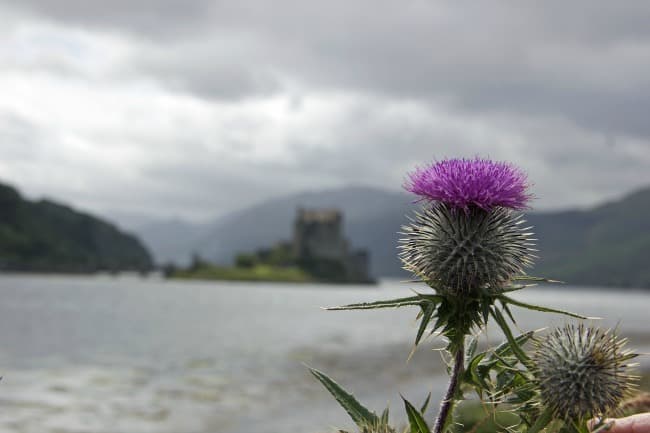
It grows wild and free in the Scottish highlands, and is both a beautiful and dangerous plant, which has been woven into the history, legends and lives of Scots for centuries.
'Scotland The Brave' is Scotland's 'unofficial' National Anthem.
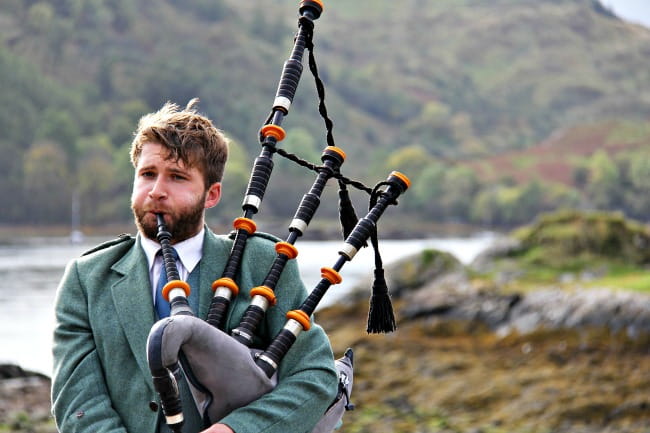
The traditional Scottish music and soul-stirring lyrics gets the Scottish blood pumping!
It's one of Scotland's most modern symbols as it was written just over 60 years ago, but that doesn't mean it's loved any less!
Scotland doesn't have it's own official national anthem as 'God Save the King' applies to the United Kingdom as a whole. There is also another unofficial national anthem called 'The Flower of Scotland'.
The Saltire is the official Scottish flag and has been in use for over 500 years.
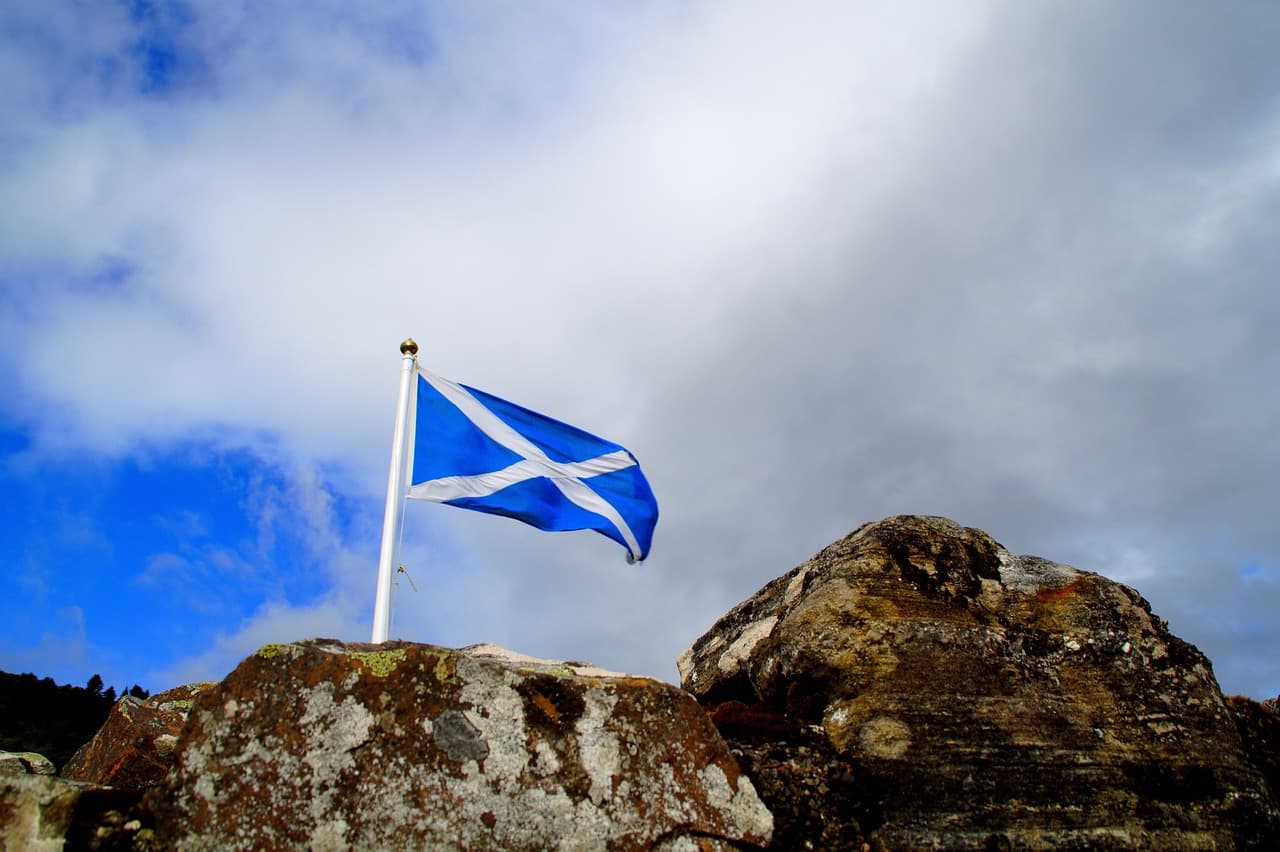
But the symbolism of it's design is much older, dating back to the 9th Century AD and the visions of clan warriors.
CLICK HERE to learn more about the Saltire
The striking, yellow and red Lion Rampant flag (aka the Royal Banner of Scotland) is Scotland’s ‘other flag’, the unofficial one!
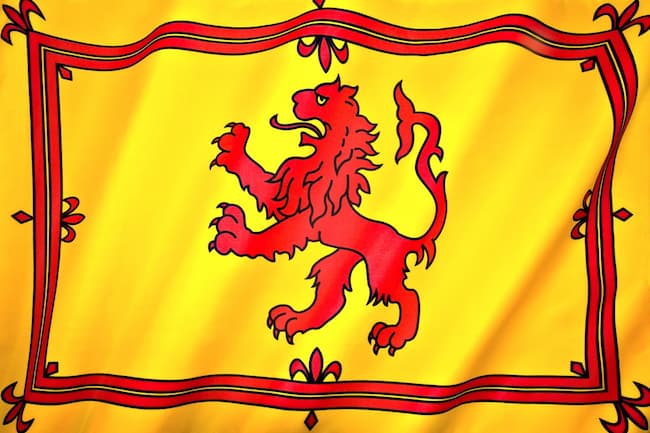
Historically the Lion Rampant flag belonged to the Scottish
monarchy, and is only allowed to be flown by a limited number of people, the
most important being members of the Royal Family (today that is the British
Royal Family as Scotland no longer has royalty to call its own).
According to ancient records, this striking and colorful symbol of Scotland first appeared in recognizable form during the reign of King Alexander II in the early 13th century. However the lion symbol itself had been used earlier by both King William ‘The Lion’ who reigned from 1165 to 1214 and King Richard
Today the Lion Rampant flies from royal residences when the King/Queen is NOT in residence, and although you won’t see it flying from other buildings or residences (special permission is required for this), it’s a firm favorite with sports fans and you’re very likely to see it rippling across the stands at international sports events and games.
Click here to learn more about Scotland's Lion Rampant flag
Haggis is Scotland's National dish, and has been part of Scottish food culture for centuries.
Haggis is made from the parts of a sheep that are not generally eaten (offal or innards) and the exact point in Scottish history that the haggis first appeared is undetermined as historians and experts can't quite agree.
Some believe that this unique food was invented around the time of the Viking invasions into Scotland in the 8th century. The word 'haggis' is said to have been a Viking word for 'bag' and is first recorded in writing around this time. However, the actual dish itself may well have existed for centuries before this as offal was a cheap, nutritious food that spoiled quickly and Scots are definitely not wasteful by nature.
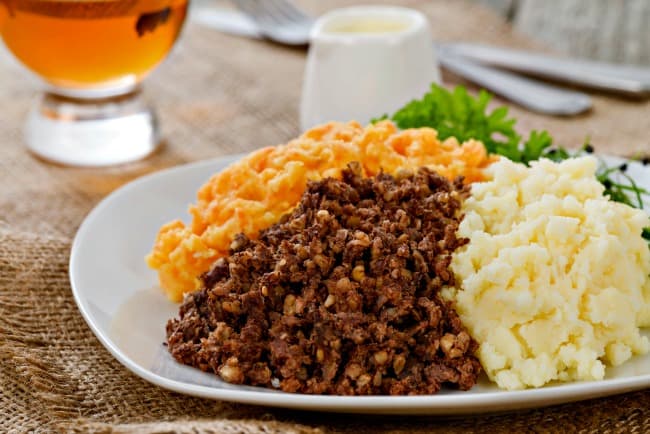
Haggis is basically the organ meats from a sheep (heart, liver and lungs) finely chopped and mixed with onions, oatmeal and/or suet, stock, salt and spices, then stuffed into the stomach bag of said sheep which is then sewn, or tied, closed.
The whole concoction is boiled for several hours, after which the stomach is cut open and the filling dished up.
It's traditional to serve haggis with potatoes and turnips, fondly known in Scotland as 'tatties and neeps', and maybe even washed down with a good Scotch whisky.
In fact, this is the exact meal Scots relish on Burns Night every year (Robert Burns was apparently a haggis fan as his poem 'Address to a Haggis' written in 1786 proves).
I'd have to admit that none of the above makes Scottish haggis sound appetizing, and as a vegetarian it's not something I eat myself, but I have it on good authority that a well prepared haggis is meaty, spicy and tasty. If you try one feel free to let us know if you agree.
Fun Facts
- If you're an American with Scottish roots you won't be able to buy authentic Scottish haggis as a sheep's lungs are considered unfit for human consumption by the USDA. But you can find a 'lung-less' version if you're committed to trying haggis for yourself (check it out HERE).
- There is a national joke in Scotland which refers to a haggis as a small, native creature' and apparently there are a lot of tourists who believe this is fact and hope to see, or even catch, one while visiting!
There are over 3000 Scottish castles, including some of the oldest and most famous castles in the world.
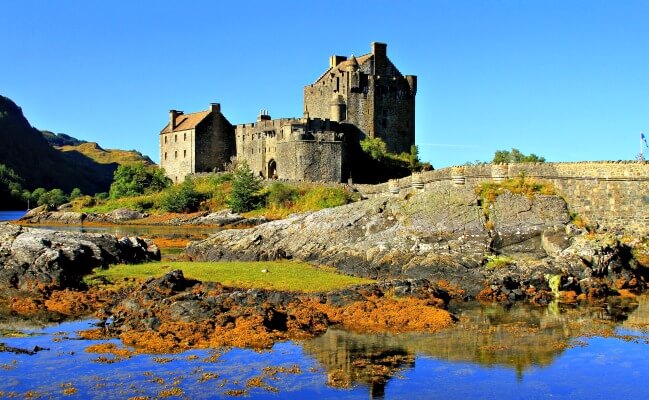
They
stand as silent reminders of Scotlands' ancient, violent and colorful
history. Each one a unique, magnificent and 'touchable' piece of history
CLICK HERE to learn more about Scotland's castles
Scottish heather is another beautiful, and natural, Scottish symbol which is famous around the world.
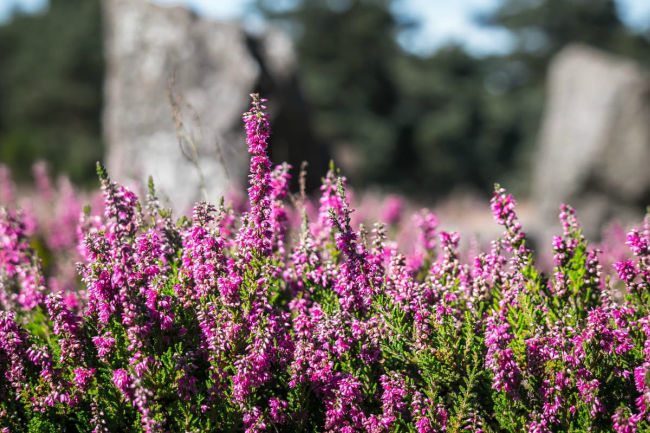
With lots of practical uses, plus a whole host of legends and myths
surrounding it, this humble plant may well be one of Scotlands' most
intriguing emblems!
CLICK HERE to learn more about Scottish Heather
The fascinating and mythical Unicorn has been associated with Scotland and Scottish heraldry for hundreds of years.
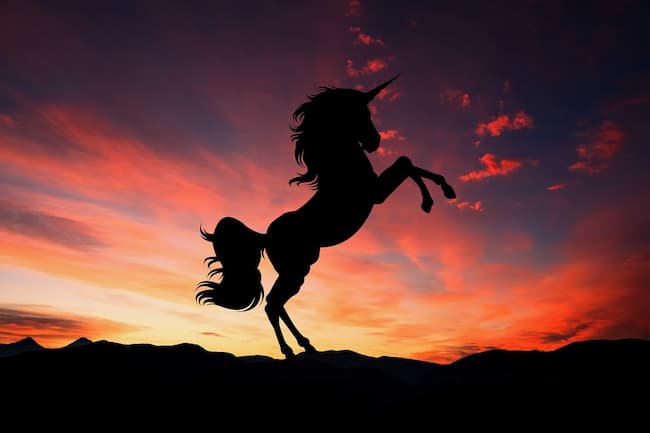
He is wild, fierce, bold and resilient - so the perfect choice for a national Scottish symbol!
CLICK HERE to learn more about the Unicorn of Scotland
Although Saint Andrew, the Patron Saint of Scotland is a well-recognized and beloved symbol of Scotland, you might be surprised to learn that he wasn’t actually Scottish by birth. Instead, according to the New Testament, Andrew was born into a fishing family in Bethsaida, Galilee (now Israel) when Jesus was likely somewhere between ten and fifteen years old.
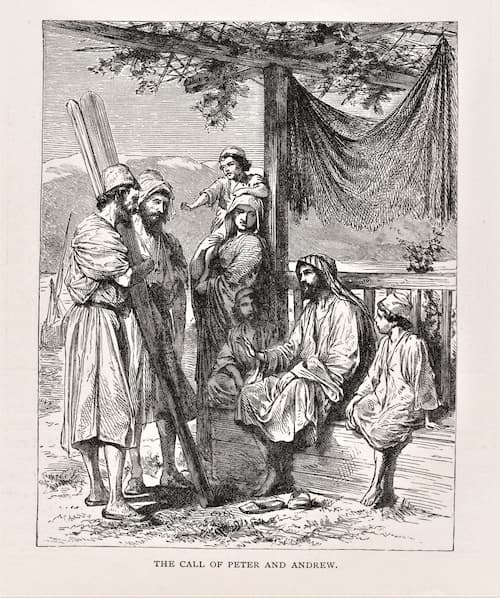
So, how did he become an honorary Scotsman and the official patron saint of a country halfway around the world from his birthplace?
This was all a long time ago and what we ‘know’ has been deduced and reconstructed from ancient documents, papers and legends, so sometimes there are two versions of an aspect, or ambivalence about names or occupations. Regardless, the overall story is pretty clear, and here’s a quick summary for you.
Andrew’s younger brother was named Simon Peter (who also became a Saint), and both brothers were among the original twelve Disciples of Jesus, with Andrew having the honor of being the very first Disciple. After Jesus was crucified Andrew continued to share his Christian faith and the teachings of Jesus, which led to him being crucified by the Romans.
Andrew didn’t want to be crucified on a cross similar to the one Jesus died on as he didn’t feel he was worthy of that, as a result he died bound by rope to a diagonal, or X-shaped, cross in Patras, Greece in the year AD60. This type of cross is now called the St. Andrew’s cross, and it is proudly displayed on Scotland’s Saltire flag.
Originally Andrew’s bones remained in Greece but, according to one legend, sometime in the fourth century AD a monk (or possibly a bishop) called St. Regulus (or St. Rule) had a vision which told him to hide some of the bones.
A second vision told him to take the relics ‘to the ends of the earth’ and to build a shrine for them wherever he ended up. As it turns out, St. Regulas’ journey came to an end at Kilrymont in the Kingdom of Fife (later to be renamed St. Andrew’s) on the east coast of Scotland.
Sometime during the mid 700’s, the Pictish King Oengus I (aka Angus) built a monastery to honor Saint Andrew.
As to how Andrew became the Patron Saint of Scotland, legend has it that approximately a century later, while preparing for battle against the Saxons from the south, King Angus II had a dream/vision that told him to look for the sign of a cross in the sky.
Later while praying for victory he saw white clouds forming an X-shaped cross against the blue sky. The King promised that the cross would become the Scottish flag, and that Saint Andrew would be honored as the Patron Saint of Scotland if his army was victorious, and although greatly outnumbered they did in fact win the battle, and King Angus II kept his promise.
St. Andrews was a popular pilgrimage site for many centuries as people came from around the world to visit the relics. But in the 16th century, during the Protestant Reformation of Scotland, the leader of the Reformation, John Knox, stole Saint Andrews bones along with other valuable historical artifacts and banned all related celebrations.
In 1879 the Archbishop of Amalfi gifted the Scottish Archbishop John Menzies Strain with what is said to be the shoulder blade of Saint Andrew, and in 1969 Pope Paul VI gifted a piece of the Saint’s skull to the then Archbishop of St. Andrews and Edinburgh, Cardinal Gordon Gray. Today these relics can be found enshrined at St. Andrew’s altar at the of St. Mary’s Roman Catholic Cathedral in Edinburgh.
In spite of his popularity, this humble fisherman and Disciple of Jesus didn’t become the official Patron Saint of Scotland until the signing of the Declaration of Arbroath in 1320 where he is referred to as ‘our patron or protector’ (The Declaration of Arbroath is one of Scotland’s most famous and important documents which asked the Pope to recognize Scotland’s independence and Robert the Bruce as their King).
Throughout the centuries, and even during difficult periods for the Catholic faith in Scotland, Scots have celebrated Andrew the Apostle with a feast day since as early as the second century AD. St. Andrew’s Day falls on November 30th each year and Scots enthusiastically continue to celebrate it with traditional food, drink and entertainment.
St. Andrew is also......
The Patron Saint of The Order of the Thistle, which is the senior Order of Chivalry in Scotland and was established in 1687
A Patron Saint of Amalfi, Pienza and Sarzana (in Italy), the island of Barbados, plus locations in Greece, Philippines, Romania, Russia, Sicily, and Ukraine
Considered the Patron Saint of fishermen, fishmongers, army rangers, mariners, singers, maidens, spinsters, rope-makers, golfers and more!
Robert Burns, affectionately known to Scots as Rabbie Burns, was a Scottish poet and writer who lived during the latter part of the 18th century.
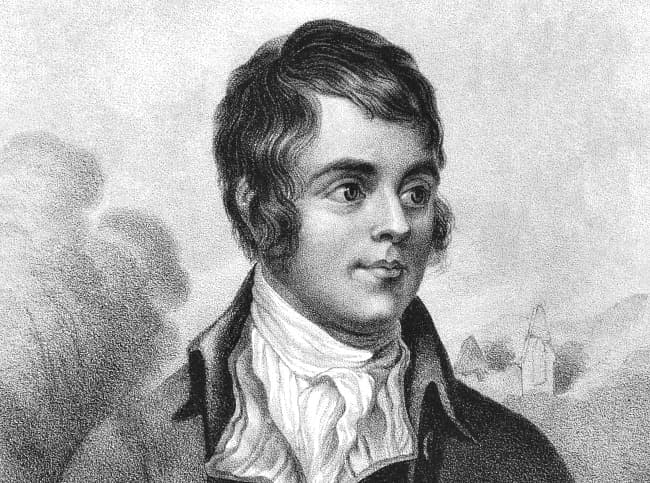
Both his name and his work are internationally known, and the world-famous New Year's Eve favorite song, 'Auld Lang Syne', is one of his most recognized and popular works.
Although Robert Burns died young, at only 37 years of age, he left an indelible imprint on Scottish history and his life and work is celebrated annually on Burns Night which falls on January 25th.
CLICK HERE to learn about famous Scottish people
Traditional Scottish Kilts are our national costume and a Scotsman wears his tartan outfit with pride.
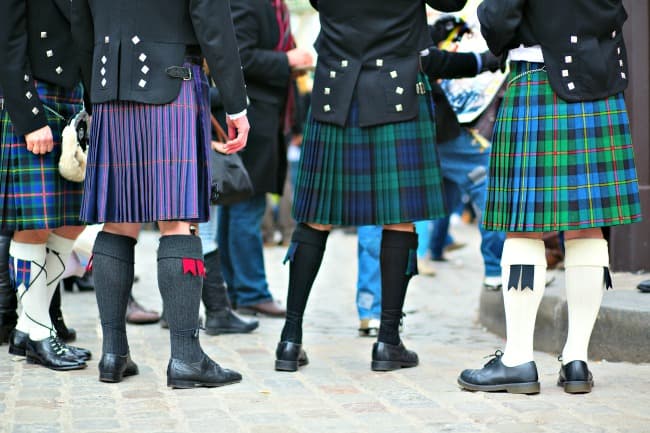
The simple practical garment first worn by Highlanders, has become not just a striking piece of clothing, but a world-famous symbol of our country.
CLICK HERE to learn more about Scottish kilts
The Golden Eagle is a magnificent bird who deserves the title of National Bird of Scotland... and efforts are underway to get it for him
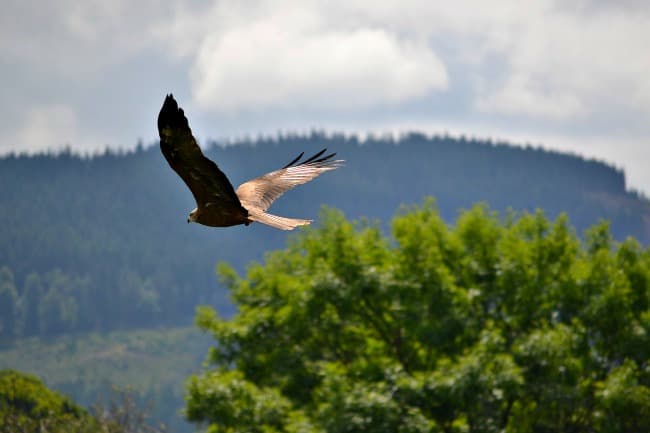
This iconic bird is as wild, courageous and beautiful as the Highlands it calls home.
CLICK HERE to learn more about Scotland's Golden Eagle
The Scottish Terrier (aka the Scottie) is one of Scotland’s oldest native dog breeds.
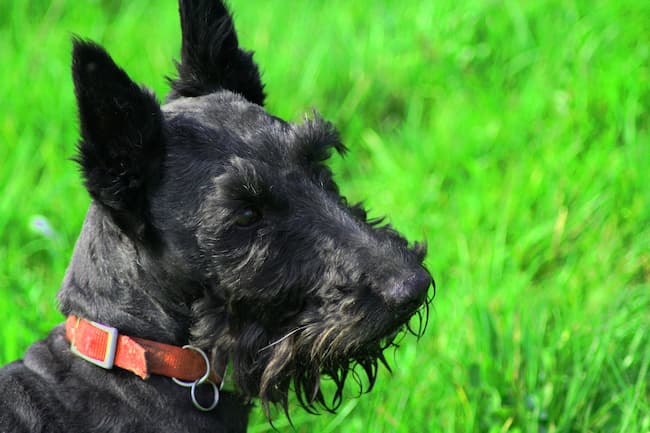
The popular Scottie is a tough, courageous, determined, feisty, affectionate and playful little guy. And he doesn’t know he’s little!
Originally bred to hunt vermin in the Highlands of Scotland, including most rodents and even badgers and foxes.
Scottish Terriers are popular around the world, and are instantly recognizable with their compact bodies, short legs, pointed ears, wiry coat and erect tail.
If you’ve ever seen the original Lady and the Tramp movie, you’ll always remember what a Scottie looks like!
CLICK HERE to learn more about Scottish Dog Breeds
Although the Scots Pine (aka the Scots Fir, or Scotch Pine) didn’t take it’s official place as Scotland’s National Tree until 2014, it is one of the most ancient of Scottish symbols and has been woven into the history, culture, traditions and folklore of the country for century upon century.
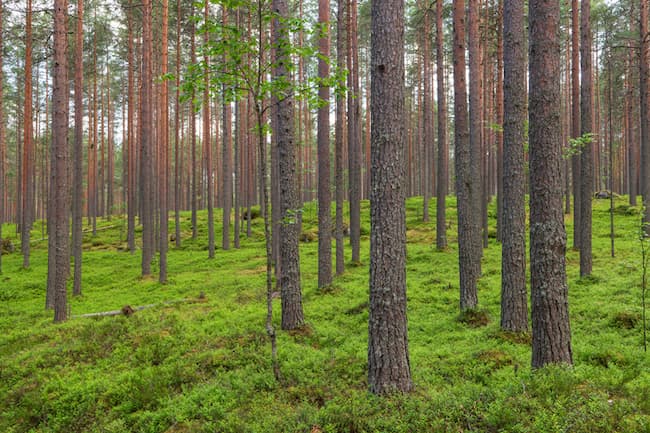
These trees were once part of the majestic Caledonian Forest
(aka Caledonian Pine Forest) which stretched across huge swathes of northern
Europe as far back as 12,000 years ago.
Fortunately for the Scots Pine it is perfectly suited to it’s environment and conditions in Scotland, where it helps to prevent soil erosion, protect smaller trees and groundcover, and also offers safe haven to native creatures such as rabbits and squirrels, wildcats, as well as numerous birds, both big and small.
The Scots Pine features has a distinctive orange/red and brown bark and blue/green needles, and stands straight and tall (can reach up to 115 feet in height). These majestic trees can live for hundreds of years, usually between 400 and 500 years, although some older ones do exist. It blows my mind to think what they must have witnessed during their lifetime!
The title National Tree of Scotland is well deserved because the Scots Pine has played multiple roles in the lives of Scots for centuries.
On a practical level, it’s strong but flexible wood was perfect for building boats and ships of all sizes as well as fencing, furniture and more. The sap (or resin) was useful for sealing both boats and a barrels, and the roots were used to weave ropes and baskets and as candles.
The pine needles themselves were used in many herbal and local remedies and are said to help with chest congestion and respiratory problems as well as having antibacterial properties. Pine needle tea was (and is still used today) popular in the winter as it’s a good source of vitamin C which helps ward off those pesky winter illnesses.
From a more mystical perspective, the Scots Pine has been a feature of the Scottish landscape (both literally and figuratively) for so long that’s it’s difficult to even date.
Celtic mythology relates the Scots Pine to good luck, birth and new beginnings. Pine candles were believed to bring good luck at weddings, and purification after childbirth.
Druids existed in Scotland as early as the 4th and 5th centuries and according to legend they were descended from fairies (the wee folk). During the Winter Solstice they would use Scots Pine wood in bonfires and adorn living pines with lights and sparkling or shiny objects.
Because Scots Pines generally towered over other types of trees, in times gone by they were often used to mark roads and boundaries, as well as important burial places or sites.
There is a Scottish Gaelic Proverb about both the Scots Pine and Scottish heather, it reads:
‘Cruaidh mar am fraoch, buan mar an giuthas’ ‘
Translated it means:
'Hard as the heather, lasting as the pine’.
Pretty much sums up so much of Scotland and it's people for me.
If we're looking for something to shout 'Scotland' then the bagpipes fit the bill pretty well!
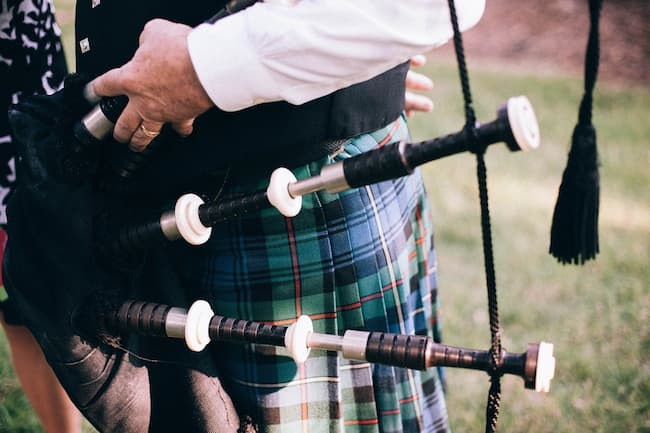
Even though the bagpipes are a easily recognizable Scottish symbol, there are mixed opinions as to where they originated, with some historians believing they may first have been found in Egypt, or even earlier in Greece.
They're also found in many diverse countries and cultures including Scotland, Ireland, New Zealand Sweden, Austria, Spain and more.
BUT... regardless of their initial birthplace, Scotland turned the bagpipes into an instantly recognizable Scottish symbol and Scotland's National Instrument.
In fact, the Great Highland Bagpipes are unique to Scotland, and owe their fame to the Highlanders who developed them into the instrument you see being played at weddings, festivals, ceilidhs, sporting events (including the Highland Games), parades etc.
At one point, during the 18th century, the bagpipes were classified as an instrument of war (due to their success in encouraging and emboldening Scottish warriors in battle) and were banned for some time.
It's true that bagpipe music is woven into the soul of every Scot, and I can tell you from experience that hearing it will cause the hairs on your arms to stand up and your spine to stiffen... no matter how far away, or for how long you've been away, from Scotland!
The Scottish clan system has existed since the at least the 1100's, and over the centuries it has been many things and served many purposes.
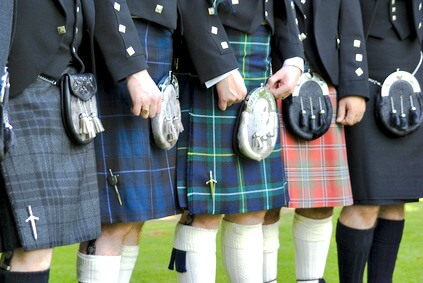
A dictionary will tell you that the word 'Clan' means many things, including family, tribe, society and kinfolk.
Clan heritage is hugely important to Scots. It's a sense of belonging, a source of pride, a connection to history and ancestors long passed.
Click here to learn more about Scottish Clans
Scotch whisky (yes, it's spelled without the 'e') has a world-famous, and well-deserved stellar reputation and is an easily recognizable symbol of Scotland.
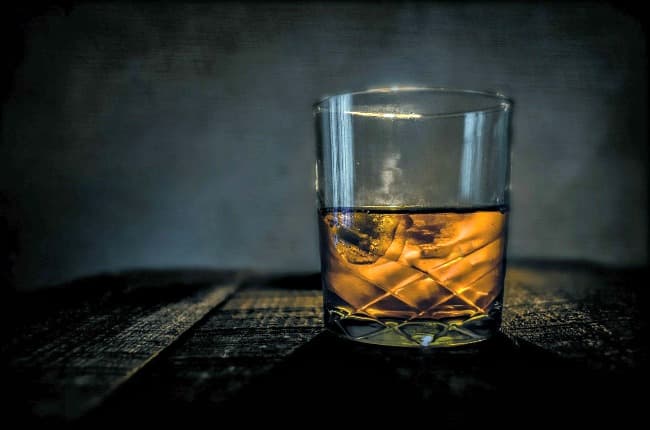
Know originally as uisge beatha ('water of life' in Gaelic) the earliest written records of Scotch being distilled in Scotland appeared in 1494 in the Exchequer Rolls of Scotland.
Scottish whisky is one of the UK's top exports and whisky drinkers around the world know and love a good Scotch.
Hogmanay in Scotland is quite the New Year celebration, and more important to many than Christmas itself.
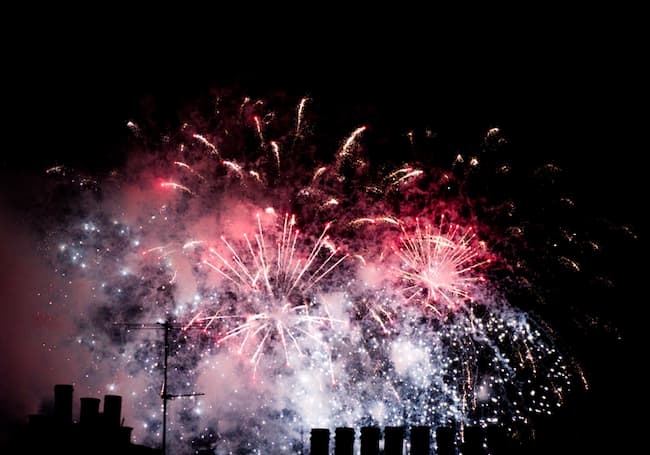
There are many celebrations which are unique to Scotland, and although many countries celebrate New Year's Eve on December 31st, the Scottish celebrate it in their own unique way!
There are a whole host of symbolic Scottish traditions and rituals surrounding Hogmanay, including First Footing, Redding, fire festivals and more.
Some have roots that go back to paganism, Viking times and Gaelic traditions.
Click here to learn more about Hogmanay in Scotland
The Highland Games originated hundreds of years ago as serious competitions designed to test the strength, stamina and bravery of men.
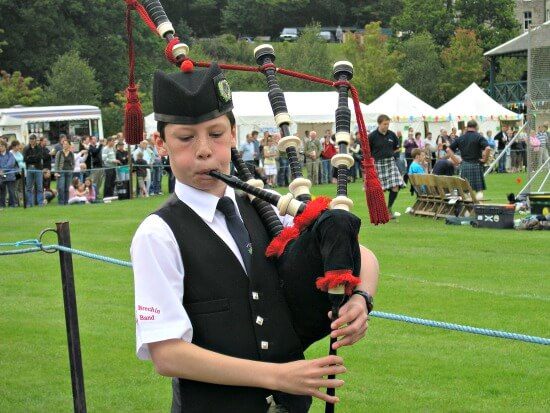
Today they are friendly, but still highly competitive, sporting contests where people compete in a variety of unique and entertaining events including the traditional Toss the Caber, Hammer Throw, Stone Put and more.
Modern additions to the might schedule include cycling, sheep-dog trials and various races.
Highland Games aren't just held in Scotland anymore, but across the globe with contestants and audiences enjoying themselves in places as far flung as the USA, New Zealand, Brazil, France, Germany and more.
Click here to read more about Scottish Highland Games
- Home
- Symbols & Emblems